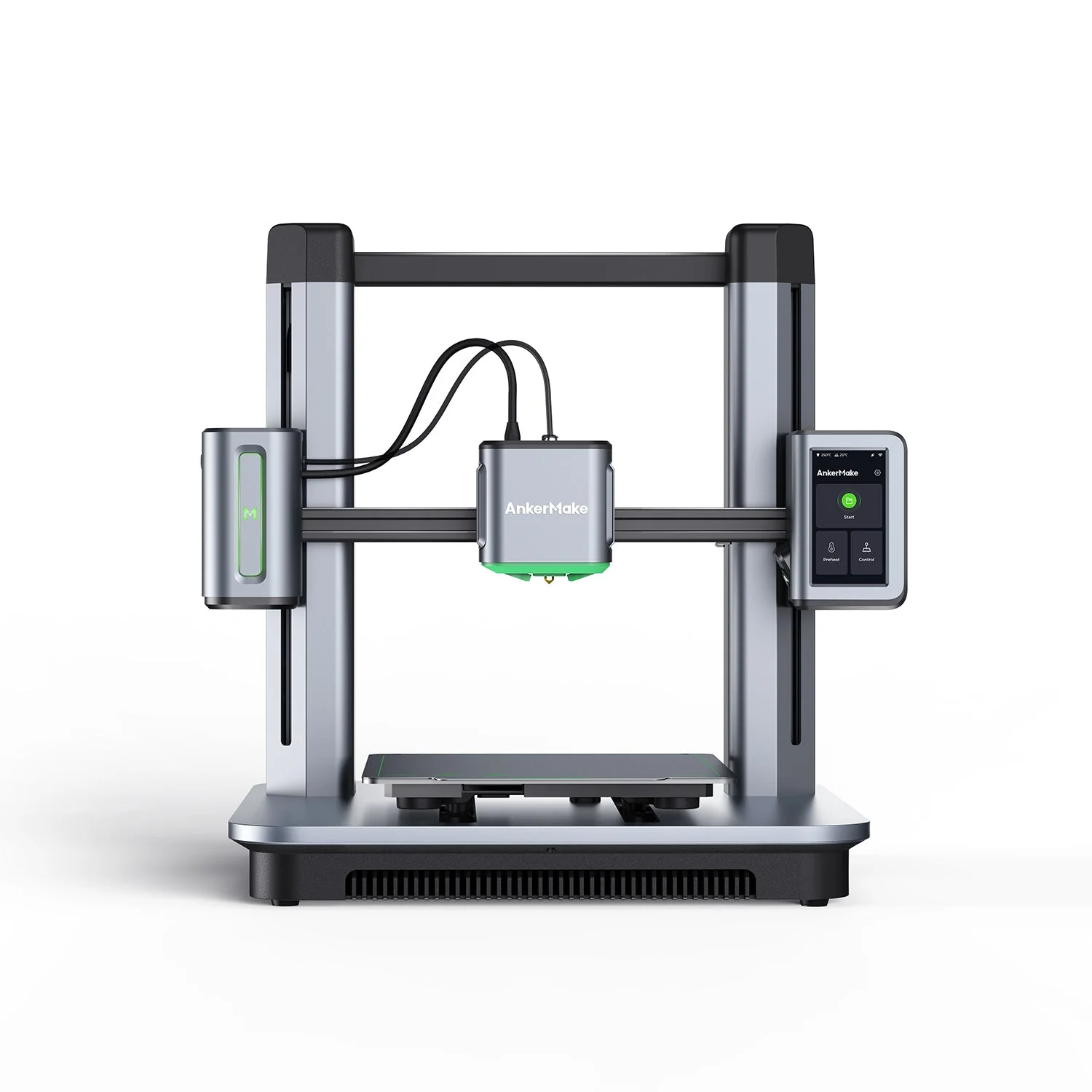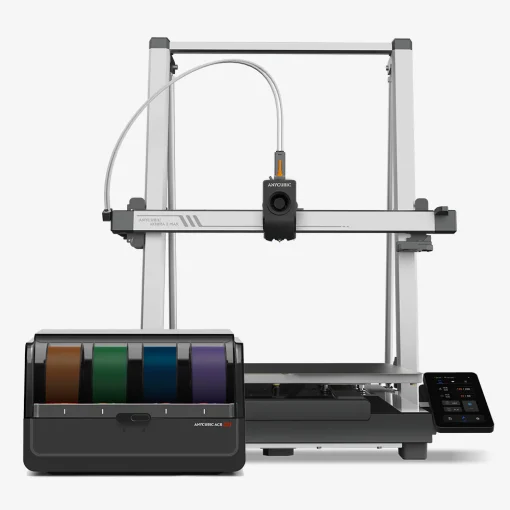Compare M5 vs Kobra 3 Max Combo
Comparison between the best 3D printers
Choose the best 3D printer at the best price. The cheapest 3D printers are here.
Buy a 3D printer here with 3D Fila.
 |
 |
|
| Model | M5 |
Kobra 3 Max Combo |
| Printing Material | Filament | Filament |
| Buy Filament for AnkerMake M5 | Buy Filament forAnycubic Kobra 3 Max Combo | |
| Estimated price | $497,00 | $699,00 |
| Manufacturer | AnkerMake | Anycubic |
| Release Year | 2023 | 2025 |
| Print Volume [mm] | 235x235x250 | 420x420x500 |
| Printer Size [mm] | 502x438x470 | 640x753x706 |
| Weight [kg] | 12,6 | 23,6 |
| Power Loss Recovery | YES | YES |
| Enclosed printer | NO | NO |
| Bed Leveling | Automatic | Automatic |
| Filament End Sensor | YES | YES |
| Bed type | Heated | Heated |
| Power supply system | Direct Drive | Bowden |
| Standard nozzle | 0,4 | 0,4 |
| Maximum Nozzle Temperature [°C] | 260 | 300 |
| Maximum Bed Temperature [°C] | 100 | 90 |
| Maximum printing speed [mm/s] | 500 | 600 |
| Filament holder | YES | YES |
| Camera for supervision | YES | YES |
| Recommended filaments | PLA, PETG, ABS | PLA, PETG, TPU |
| Recommended slicers | AnkerMake Studio (macOS, Windows), Simplify3D, Ultimaker Cura, PrusaSlicer | Anycubic Slicer, Cura, Orca Slicer |
| Maximum Resolution [mm] | 0,1 | 0,01 |
| Processor | ||
| Display | Touchscreen 4,3'' | Touchscreen 4,3'' |
| Power Supply | 350 W | 800 W |
| Connectivity | Wi-Fi, USB-C, OTA Upgrade | USB, Wifi |
| Operating systems | Windows, Linux, Macbook | Windows, Mac, Linux |
| Date of registration in the system | 2024-07-08 | 2025-03-06 |
| Release date | 2023 | 2025 |
| Extra features | The AnkerMake M5 printer stands out for its impressive print speed, reaching up to 500mm/s. It features AI print monitoring, an integrated camera for creating timelapses, auto-leveling bed with pressure sensor, direct extruder, flexible PEI-coated build plate, and Wi-Fi and USB-C connectivity. Assembly is quick and easy, and the printer is designed to deliver high print quality and ease of use. | The Anycubic Kobra 3 Max Combo combines high-speed and multicolor printing with up to 8 colors. It features automatic leveling, quick filament switching, clog and entanglement detection, and AI to prevent print failures. Its 800W hotbed heats up quickly, while 10,000mm/s² acceleration ensures efficiency. App and Wi-Fi control, print recovery, and video monitoring enhance the user experience. |
| Support for multiple colors and materials (AMS and CFS) | NO | YES |
Notes * |
||
| Cost-benefit | 7 / 10 | 7 / 10 |
| Hardware | 3.5 / 10 | 5.4 / 10 |
| Tela | . | . |
| Print volume | 3 / 10 | 4 / 10 |
| Performance | 4 / 10 | 5 / 10 |
Conclusion |
| In comparing the AnkerMake M5 and the Anycubic Kobra 3 Max Combo 3D printers, both models present compelling features for different user needs and budgets. The **AnkerMake M5**, released in 2023, offers an attractive price point while delivering high-speed printing capabilities of up to 500mm/s. Its compact build volume and lightweight design make it ideal for users with limited space who prioritize speed and print quality. The M5 also includes modern features such as automatic bed leveling, a comprehensive monitoring system with a built-in camera, and direct drive extrusion. Despite its lower maximum nozzle temperature and print volume, it excels in ease of use, especially for beginners. Conversely, the **Anycubic Kobra 3 Max Combo**, launched in 2025, commands a higher price but justifies this with a larger print volume and enhanced functionalities. Its capability for multi-color printing with advanced features designed to prevent print failures positions it as a powerful tool for more experienced users or those engaging in complex projects. The larger heating power and nozzle temperature also allow for greater flexibility with various materials, including TPU. Both printers are equipped with automatic bed leveling and connectivity options, ensuring they cater to modern user needs for convenience and efficiency. In conclusion, the choice between the two ultimately depends on individual priorities: the AnkerMake M5 serves well for those seeking a budget-friendly, high-speed option, while the Anycubic Kobra 3 Max Combo provides robust features for users willing to invest more for greater capacity and advanced capabilities. Both models receive similar cost-benefit scores, indicating that they are competitive offerings within their respective price points. |

